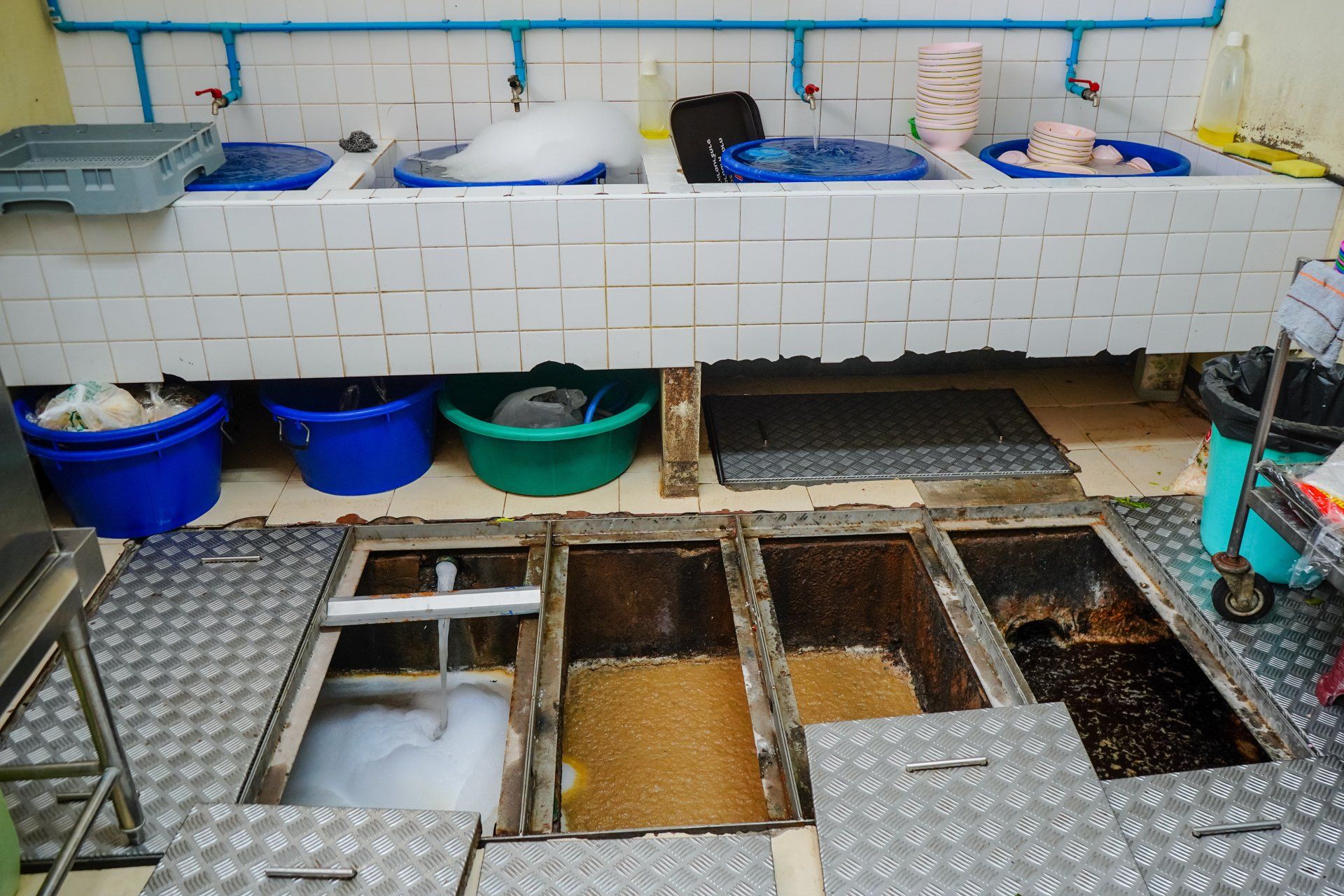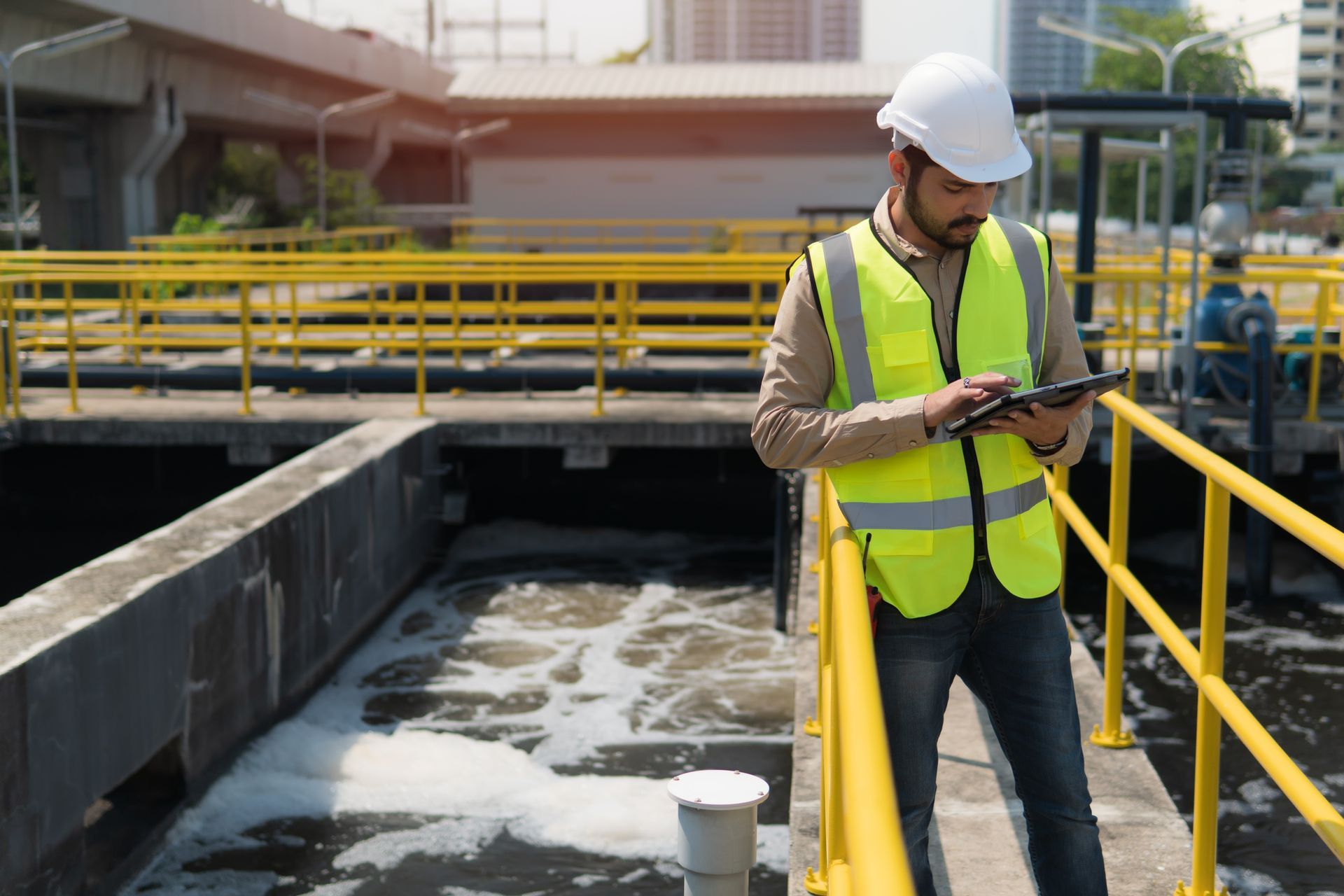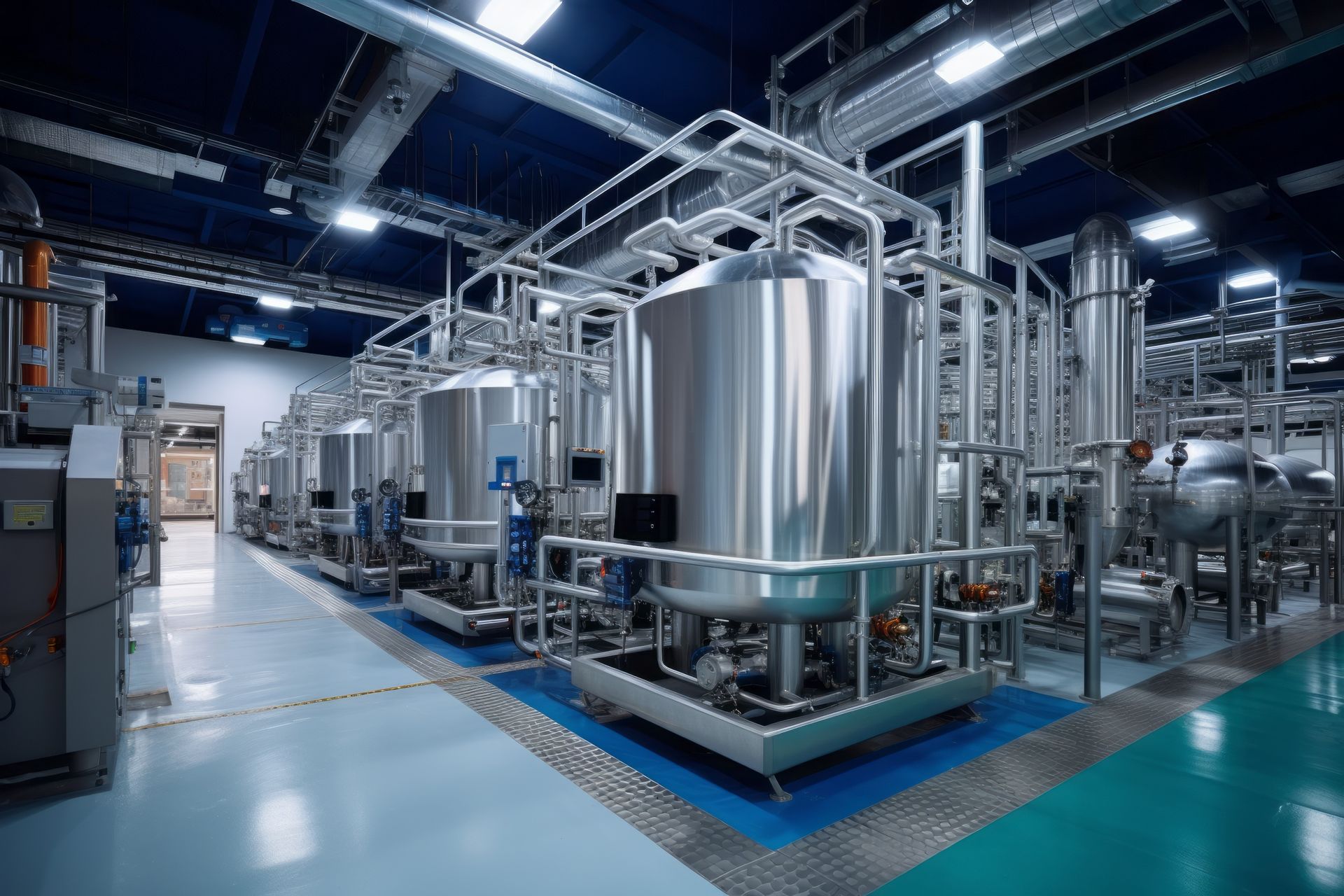Call Today for a FREE Quote
(404) 419-6887
Grease Traps vs Grease Interceptors

Grease traps and grease interceptors are essential features of commercial kitchens. These tanks, which are connected to your kitchen’s plumbing, accumulate fats, oils and grease (FOG) from activities like food preparation, disposal and dishwashing. When wastewater from kitchen sinks travels through the pipes, it eventually ends up at a water treatment plant, where it’s thoroughly cleaned and returned to the environment. Unfortunately, grease is something a water treatment plant cannot treat. What’s more, because of its solidifying quality, grease may get stuck in water pipes, causing sewer backups and overflows. Sewage cleanup and repair can be very costly and time-consuming.
To prevent these events from happening and to protect the environment, restaurants and other establishments, like bakeries, schools or hospitals are required to install grease traps or interceptors in their kitchens.
Grease traps and grease interceptors trap FOG in their tanks. These tanks must be cleaned out regularly to prevent overflow. While both units keep your plumbing system clean and clog-free, there are several differences between the two.
Commercial Building Regulations in Atlanta
Georgia cities and counties impose strict regulations on businesses that discharge fats, oils and greases into the municipal sewer systems. Prior to having a pretreatment system like a grease trap or grease interceptor installed at your facility, most cities and counties will require you to seek their permission by obtaining a Commercial Waste Discharge Permit. This may require a consultation and inspection so the city or county can sign off on your grease trap and grease interceptor plan.
How Are Grease Traps and Grease Interceptors Similar?
Any business that generates FOG is required to install grease traps or a grease interceptor. That generally means any food service business or any business, commercial building or institution that has a cafeteria, kitchen or concessions will be required to have some form of FOG interception.
Most grease traps and grease interceptors are FOG removal units designed for industrial and commercial kitchens. Homes and residences generally aren’t required to have grease traps.
Both devices work in essentially the same way. The water draining down kitchen sinks gathers temporarily in the grease trap or interceptor, where the FOG is allowed to separate, after which the FOG-free wastewater continues down the pipes.
How Are Grease Traps and Grease Interceptors Different?
Grease Traps
Grease traps are relatively small. They are comparable in size to a microwave or a mini refrigerator. They accommodate flow rates of 10 to 50 gallons per minute and are most efficient in a low-pressure water environment. Grease traps are usually installed underneath a restaurant’s kitchen sink and dishwashing area. Since they are so small, they need to be cleaned either daily by employees or monthly by specialists. The frequency of cleaning depends on the size of the grease trap, the business and local regulations. Regular cleaning by employees can eliminate potential problems from developing.
Grease Interceptors
Grease interceptors are much larger than their counterparts. Because of their larger size, they can handle flow rates of more than 50 gallons per minute and can function in high-pressure water environments. Food service businesses that operate at relatively high volumes are often required to have outdoor interceptors instead of or in addition to indoor grease traps to better handle the large volumes of FOG that flows through their kitchen drains.
Due to of their larger size and capacity, they are usually installed outside of a building or underground. They are known for producing unpleasant odors, especially if they haven’t been emptied or cleaned recently, and therefore should be situated away from customer-accessible areas when possible. Because interceptors can hold more FOG, they don’t have to be cleaned as often as grease traps.
Contact Southern Green Industries in Georgia to Help Maintain Your Grease Trap
We proudly work with businesses and institutions of all sizes in Atlanta and throughout the entire state of Georgia to help them maintain compliance with all their local grease trap service and maintenance requirements.
Our affordable services go beyond cleaning out your grease trap or grease interceptor. We also offer waste oil collection and recycling services. We can even apply your waste oil recycling earnings as credit toward your grease trap service bill.
Call (404) 419-6887 or fill out the form for a free service quote.
Recent Blog Posts
Contact us Today for a FREE Quote
We are committed to making grease trap cleaning and fryer oil recycling as clean and easy as possible. If you’d like to learn more about our services or get a quote, give us a call at (404) 419-6887.
Southern Green Industries is an Atlanta owned and operated grease trap cleaning and fryer oil recycling company operating in Atlanta and throughout the entire state of Georgia.
All Rights Reserved | Southern Green Industries | Built by REV77



